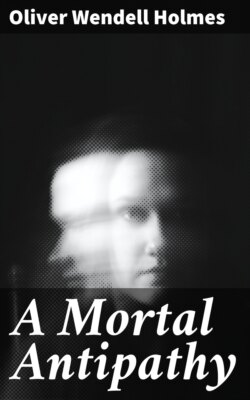Читать книгу A Mortal Antipathy - Oliver Wendell Holmes - Страница 9
ОглавлениеTill naught remains the saddening tale to tell
Save home's last wrecks, the cellar and the well.
But if this sight is saddening, what is it to see a human dwelling fall by the hand of violence! The ripping off of the shelter that has kept out a thousand storms, the tearing off of the once ornamental woodwork, the wrench of the inexorable crowbar, the murderous blows of the axe, the progressive ruin, which ends by rending all the joints asunder and flinging the tenoned and mortised timbers into heaps that will be sawed and split to warm some new habitation as firewood—what a brutal act of destruction it seems!
Why should I go over the old house again, having already described it more than ten years ago? Alas! how many remember anything they read but once, and so long ago as that? How many would find it out if one should say over in the same words that which he said in the last decade? But there is really no need of telling the story a second time, for it can be found by those who are curious enough to look it up in a volume of which it occupies the opening chapter.
In order, however, to save any inquisitive reader that trouble, let me remind him that the old house was General Ward's headquarters at the breaking out of the Revolution; that the plan for fortifying Bunker's Hill was laid, as commonly believed, in the southeast lower room, the floor of which was covered with dents, made, it was alleged, by the butts of the soldiers' muskets. In that house, too, General Warren probably passed the night before the Bunker Hill battle, and over its threshold must the stately figure of Washington have often cast its shadow.
But the house in which one drew his first breath, and where he one day came into the consciousness that he was a personality, an ego, a little universe with a sky over him all his own, with a persistent identity, with the terrible responsibility of a separate, independent, inalienable existence—that house does not ask for any historical associations to make it the centre of the earth for him.
If there is any person in the world to be envied, it is the one who is born to an ancient estate, with a long line of family traditions and the means in his hands of shaping his mansion and his domain to his own taste, without losing sight of all the characteristic features which surrounded his earliest years. The American is, for the most part, a nomad, who pulls down his house as the Tartar pulls up his tent-poles. If I had an ideal life to plan for him it would be something like this:
His grandfather should be a wise, scholarly, large-brained, large-hearted country minister, from whom he should inherit the temperament that predisposes to cheerfulness and enjoyment, with the finer instincts which direct life to noble aims and make it rich with the gratification of pure and elevated tastes and the carrying out of plans for the good of his neighbors and his fellow-creatures. He should, if possible, have been born, at any rate have passed some of his early years, or a large part of them, under the roof of the good old minister. His father should be, we will say, a business man in one of our great cities—a generous manipulator of millions, some of which have adhered to his private fortunes, in spite of his liberal use of his means. His heir, our ideally placed American, shall take possession of the old house, the home of his earliest memories, and preserve it sacredly, not exactly like the Santa Casa, but, as nearly as may be, just as he remembers it. He can add as many acres as he will to the narrow house-lot. He can build a grand mansion for himself, if he chooses, in the not distant neighborhood. But the old house, and all immediately round it, shall be as he recollects it when he had to stretch his little arm up to reach the door-handles. Then, having well provided for his own household, himself included, let him become the providence of the village or the town where he finds himself during at least a portion of every year. Its schools, its library, its poor—and perhaps the new clergyman who has succeeded his grandfather's successor may be one of them—all its interests, he shall make his own. And from this centre his beneficence shall radiate so far that all who hear of his wealth shall also hear of him as a friend to his race.
Is not this a pleasing programme? Wealth is a steep hill, which the father climbs slowly and the son often tumbles down precipitately; but there is a table-land on a level with it, which may be found by those who do not lose their head in looking down from its sharply cloven summit.—Our dangerously rich men can make themselves hated, held as enemies of the race, or beloved and recognized as its benefactors. The clouds of discontent are threatening, but if the gold-pointed lightning-rods are rightly distributed the destructive element may be drawn off silently and harmlessly. For it cannot be repeated too often that the safety of great wealth with us lies in obedience to the new version of the Old World axiom, RICHESS oblige.
